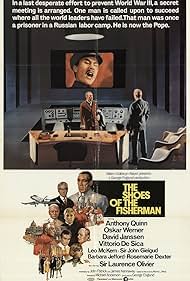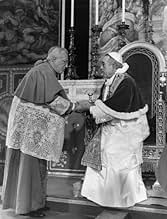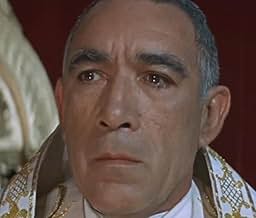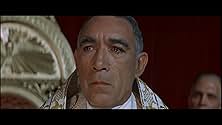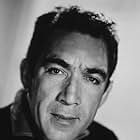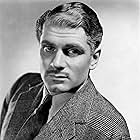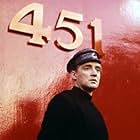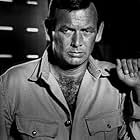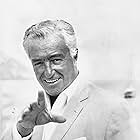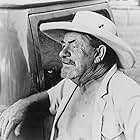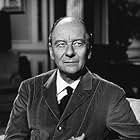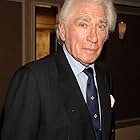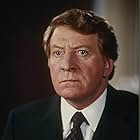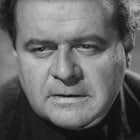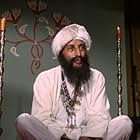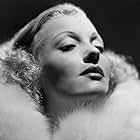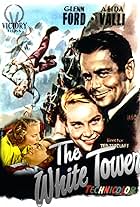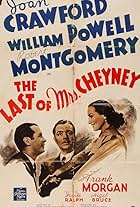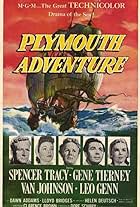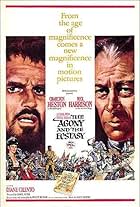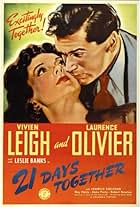After spending decades in a Siberian Gulag labor camp, Roman Catholic priest Kiril Lakota is set free by Russian leader Piotr Ilyich Kamenev at the height of the Cold War.After spending decades in a Siberian Gulag labor camp, Roman Catholic priest Kiril Lakota is set free by Russian leader Piotr Ilyich Kamenev at the height of the Cold War.After spending decades in a Siberian Gulag labor camp, Roman Catholic priest Kiril Lakota is set free by Russian leader Piotr Ilyich Kamenev at the height of the Cold War.
- Nominated for 2 Oscars
- 4 wins & 5 nominations total
- Piotr Ilyich Kamenev
- (as Sir Laurence Olivier)
- The Elder Pope
- (as Sir John Gielgud)
- Chiara
- (as Rosemarie Dexter)
- Gelasio
- (as Arnoldo Foa')
- Gorshenin
- (credit only)
- Director
- Writers
- All cast & crew
- Production, box office & more at IMDbPro
Storyline
Did you know
- TriviaIn the scene where Pope Kiril I (Anthony Quinn) prays over the body of the Jewish man, he recites the Shema. However, rather than say "Adonai," he says, "Hashem." This is because "Adonai" is traditionally only said when one is actually at prayer, and not simply reciting a prayer in a secular context, as in during a performance (specifically, in a movie).
- GoofsTV reporter George Faber (David Janssen) reacts with surprise when Lakota appears on the balcony after his election and declares, "It's Lakota. They've elected a Russian pope." But the identity of a new pope is always announced from the balcony before his first appearance as pontiff.
- Quotes
George Faber: Were you permitted to practice your ministry as a priest?
Kiril Lakota: No, I - I practiced it without permission among my fellow prisoners.
George Faber: Do you see any hope then for the day when Christian faith, or more specifically the Roman Catholic faith, may be practiced freely in Marxist countries?
Kiril Lakota: I have no inside information as to how the Kingdom of God is going to be established.
- ConnectionsFeatured in The Shoes of the Fisherman (1968)
The 1960's was a decade of seismic social and political change. It also marked a change in people's viewing habits and with increasingly younger, less literate audiences, spiralling costs and the disintegration of the studio system the film industry had to adapt or die. Whatever its merits this 'blockbuster' with its intelligent script, 160-minute length and 'intermission', seems strangely anachronistic.
Good acting is timeless of course and there are performances here that are absolutely riveting.
It is the individual scenes between seasoned professionals that are so impressive, notably Anthony Quinn as Pope Kiril, Oskar Werner as Father Telemond , Laurence Olivier as Premier Kamenev and Leo McKern and Vittorio de Sica as Cardinals Leone and Rinaldi. I am not the only reviewer to regret the strange absence of inveterate scene-stealer de Sica from the second half of the film. Olivier is a great presence and looks suitably menacing behind his spectacles but his Russian accent here is no more convincing than it was in 'Demi-Paradise' twenty five years earlier. Leo Mckern's acting can be a little 'fruity' at times but he is wonderfully restrained here and really impresses in his reconciliation scene with Quinn, who gives arguably the finest of his post-Zorba performances. There are insufficient superlatives to apply to Oskar Werner who is simply stunning.
Great support from Frank Finlay, Paul Rogers and John Gielgud who prove that there are no small parts, only small actors.
David Janssen has a totally thankless role as a link man and the two women in his life simply confirm that the female of the species has a different agenda.
Needless to say the production values are excellent and the fabulous art direction reflects the fact that permission to film in the Vatican was denied.
The score by Alex North includes music from his score to '2001' which had been rejected by Stanley Kubrick.
By far the most interesting issue raised is that of the Vatican's political stance. The main objection to Pope Kiril's meeting with Premier Kamenev and Chairman Peng is that they represent Communist regimes. This calls to mind the Vatican's support for Fascism earlier in the century.
Also striking are scenes where Father Telemond, whose character is supposedly based on Darwinian Pierre de Chardin, is questioned regarding his alleged heresy. Definite shades of the Inquisition here.
Although the ending seems simplistic it does raise the inevitable question as to why there is such a massive disparity between the wealth of the Catholic Church and poverty of the majority of those it purports to represent.
- brogmiller
- Jan 22, 2021
- Permalink
- How long is The Shoes of the Fisherman?Powered by Alexa
Details
- Release date
- Country of origin
- Languages
- Also known as
- Ribareve cipele
- Filming locations
- PalaLottomatico, Rome, Lazio, Italy(meeting with Chinese leader)
- Production company
- See more company credits at IMDbPro
- Runtime2 hours 42 minutes
- Sound mix
- Aspect ratio
- 2.35 : 1
Contribute to this page

